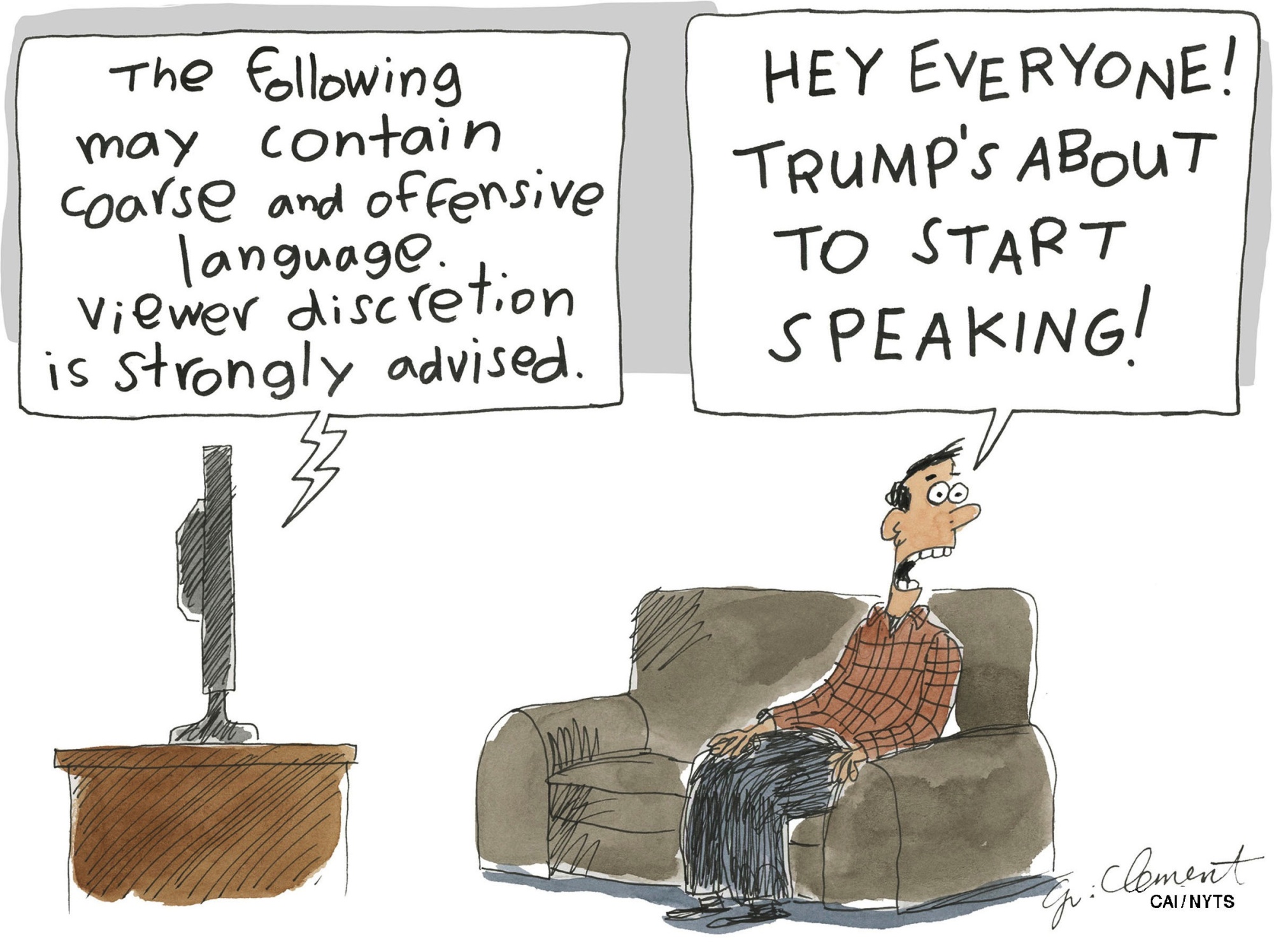By some scientific measures, Donald Trump's presidency is not an aberration but part of a long-running trend. In his use of language, Trump is off the charts in his absence of analytical statements, as well as his expressions of confidence. Both of those tendencies are correlated with success in politics.
A trend toward less analysis and more confidence has been going on for a century, according to researchers who are using a technique created a few years ago by psychologist James Pennebaker at the University of Texas. He created a program that analyzes large bodies of text and counts the different kinds of connector words — pronouns, prepositions, articles and auxiliary verbs (like "is," "have," "does"). He and colleagues found they could draw inferences from the way people used those words — about whether they were likely to succeed in school, and whether they were of higher or lower status than those they were addressing.
People with a lot of confidence assume higher status in their expressions — mainly in their use of pronouns. Confident people favor "we" and "you" while the meeker tend to use "I." We're more likely to follow someone who says "We should go this way" than one who says "I think this might be a good way to go," Pennebaker says — and that's true whether or not anyone has any idea which way we should go.



















With your current subscription plan you can comment on stories. However, before writing your first comment, please create a display name in the Profile section of your subscriber account page.